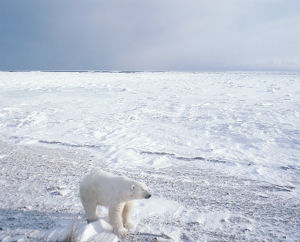Engaging research puts Reading at heart of COP 22 climate talks
Release Date 03 November 2016

Scientists from the University of Reading are playing a key role in the latest United Nations meeting to tackle climate change.
The 22nd Conference of the Parties (COP) takes place between 7 and 18 November and will see the world's nations come together in Morocco to discuss and commit to measures to combat climate change.
The agreement to phase out greenhouse gas hydrofluorocarbons at the Montreal Protocol meeting last month and the Paris climate change agreement coming into effect on 4 November have provided some optimism among those heading to Marrakesh.
The latter is a commitment by those who ratify the agreement to reduce their carbon emissions by 2030 in order to halt global warming.
But the latest COP comes as 2016 looks set to be the hottest year on record, following record global temperatures in 2014 and 2015 respectively, and observations show sea levels continue to rise. Global CO2 concentrations have also remained above 400ppm for the entirety of 2016, with experts saying they will not fall below this mark in our lifetimes.
Ahead of COP 22, scientists have urged nations to act quickly and decisively to reduce carbon emissions significantly in order to give ourselves the chance to limit global temperature increase to no more than 1.5 degrees Celcius this century.
'Arctic could be ice-free in decades'
Dr Ed Hawkins, principal research fellow at the National Centre for Atmospheric Science at the University of Reading, said: "The spiral graphics that were featured at the opening ceremony of the Rio Olympics showed how fast temperatures have been spiralling upwards in recent years. But, they are not spiralling out of control. We have been responsible for most of the past warming so our choices about future greenhouse gas emissions will define what happens next.
"Global temperatures have shown a steady increase over the last century and a half, but from year to year annual mean temperatures can go down as well as up. After three consecutive record hot years, we should expect 2017 to be cooler than 2016, although it is still likely to be one of the hottest years ever recorded."
"We also expect to see a continuing decline in Arctic summer sea ice extent, although this will happen somewhat erratically, rather like a ball bouncing down a bumpy hill. Without substantial reductions in greenhouse gas emissions, the ball will reach the bottom of the hill, meaning the Arctic is 'ice-free', starting with a few days one summer, a few weeks another summer and gradually becoming more and more frequent over the next few decades."
Send in the COPbot
The University of Reading's Walker Institute is involved in a project to send a robot to this year's COP, providing an innovative method of spreading the message about climate change.
Professor Ros Cornforth, Director of the Walker Institute, said: "Scientists have been providing the facts about climate change for decades. This year, the Walker Institute will be connecting researchers with policymakers in Morocco in a completely new way - with the use of a robot avatar.
"We will be trialling a new system to allow people who can't physically get to Marrakesh to take control of COPbot, a remote-controlled robot, to interact with COP proceedings from afar.
"This is a great example of the kind of work the Walker Institute is doing to find new collaborative solutions to sustainable, climate-resilient development."